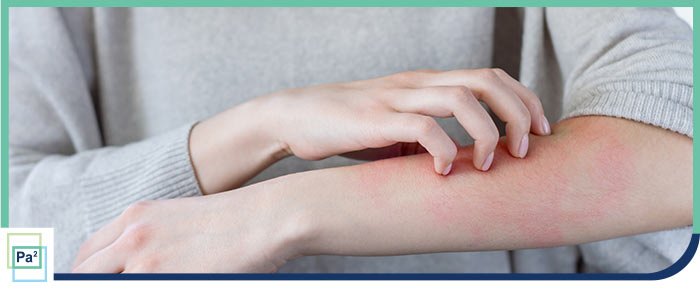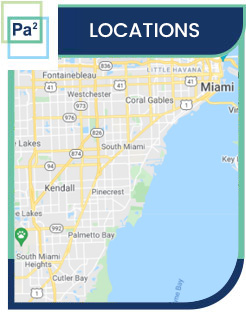What Are the Effective Strategies for Allergy Prevention?
At Piniella Asthma + Allergy, led by board-certified allergist Dr. Carlos J. Piniella, we emphasize proactive strategies for allergy prevention. Effective approaches include identifying and avoiding known allergens, using air purifiers to reduce indoor allergens, maintaining a clean environment, and considering allergy testing for personalized management. Regular follow-ups and tailored treatment plans can help minimize symptoms and improve quality of life. Contact us today to book an appointment online! We have convenient locations to serve you in Coral Gables, FL and Palmetto Bay, FL!


Table of Contents:
How can allergies be prevented?
Are allergy shots effective in preventing allergies?
What are common allergens that I should avoid to prevent allergic reactions?
Are there dietary changes that can help prevent allergies?
How can I identify if I have an allergy before it becomes severe?
Allergies, caused by an overreaction of the immune system to substances such as pollen, bee venom, pet dander, or certain foods, affect millions of people worldwide. Understanding your allergy triggers is a crucial first step towards managing your symptoms. Allergy testing can identify the specific allergens causing your discomfort. Once these triggers are identified, you will be guided in taking steps to avoid them, such as keeping your home dust-free or avoiding outdoor activities during high pollen count days.
Medications may also be provided to alleviate acute allergy symptoms. For patients with severe allergies, immunotherapy might be an option. This treatment involves gradually exposing the body to increasing doses of the allergen to build tolerance over time.
One treatment, known as allergy shots or immunotherapy, is a recognized method that aims to desensitize individuals to certain allergens that trigger their allergic reactions. This approach is used to gradually expose the patient to small, increasing doses of the allergen over an extended period. The goal of this treatment is to induce the immune system to tolerate the allergen, thus reducing or eliminating the symptoms of allergic reactions. Over time, these shots could potentially prevent the development of new allergies and reduce the risk of severe allergic reactions.
Numerous clinical studies and anecdotal evidence support the effectiveness of allergy shots in preventing allergies. Research shows that participants who received immunotherapy showed a significant reduction in the severity and frequency of their allergic reactions compared to those who received a placebo. This was observed for various allergens, including pollen, dust mites, pet dander, mold, and bee venom.
However, the effectiveness of allergy shots can vary from person to person. Some people may experience a significant reduction in allergy symptoms, while others may see only a minor improvement. They are generally most effective for common allergens but less effective for food allergies and are not recommended for severe food allergies.
Factors such as the type of allergen, the patient’s age, the duration of treatment, and the individual’s immune response can influence the effectiveness of allergy shots.
Here are some common allergens that you can avoid to prevent allergic reactions:
• Food-Related Allergens: Peanuts, tree nuts, shellfish, fish, milk, eggs, soy, and wheat.
• Environmental Allergens: Pollen, dust mites, mold spores, and pet dander.
• Insect Venom Allergens: Provoked by insect stings from bees, wasps, hornets, yellow jackets, and fire ants.
• Contact Allergens: Latex, ingredients in cosmetics and personal care products, and metals like nickel.
For those who are prone to allergies or have a family history of allergies, we often recommend reducing or eliminating these foods from their diet. However, we always stress that significant dietary changes should always be made in consultation with a healthcare provider.
In terms of supporting immune function, we recommend incorporating a variety of fruits, vegetables, lean proteins, and whole grains into your diet. These foods are rich in essential nutrients like vitamins C and E, Omega-3 fatty acids, and antioxidants, which are known for their role in enhancing immune function.
For new parents, we suggest considering breastfeeding for at least six months to offer some protection against allergies in infants. Breast milk contains antibodies and other factors that help support the immune system.
The early introduction of allergenic foods at a young age is highly recommended. Gradually introducing potential allergens into a child’s diet during the first year of life may reduce the risk of allergies, particularly for foods such as peanuts, eggs, and wheat.
Dietary changes can potentially prevent allergies, but they are not a guaranteed solution. Allergies are influenced by genetics, so having a consultation for personalized advice and gradually implementing these changes is crucial to avoid adverse reactions or nutritional deficiencies.
Symptoms of an allergic reaction may include respiratory issues, skin reactions, eye irritations, gastrointestinal problems, and severe reactions such as anaphylaxis.
Allergies can be triggered by exposure to various substances, including pet dander, pollen, dust, and certain foods. New substances and medications, such as antihistamines, antibiotics, and painkillers, can also cause allergies. Cross-reactivity can occur when reactions occur with foods or substances similar to known allergens.
If you’ve noticed a recurring pattern of symptoms after exposure to the same substance, or if you have a family history of allergies, you may be dealing with an allergy. It’s important to seek a professional diagnosis as these symptoms can also be caused by other conditions, such as a common cold or skin irritation.
Prevention and management of allergies involve a combination of medication and lifestyle modifications. This could include avoiding known allergens, taking medication to relieve symptoms, and preparing for emergencies by carrying an epinephrine auto-injector (e.g., EpiPen) if you have a history of severe allergic reactions.
Identifying allergies early requires awareness of body reactions to substances and regular monitoring of symptoms, especially after exposure. A definitive diagnosis and treatment plan should be obtained from a healthcare professional like Dr. Carlos J. Piniella, who specializes in allergies and immunology. We serve patients from Coral Gables FL, Palmetto Bay FL, Westchester FL, Brownsville FL, Kendall FL, Pinecrest FL, Richmond West FL, and the surrounding areas!

Additional Services You May Need
▸ Asthma
▸ Allergy Testing
▸ Food Allergies
▸ Immunotherapy
▸ Patch Testing
▸ Allergy Treatment
▸ Pediatric Asthma Specialist
▸ Pediatric Allergist
▸ Insect Bite Allergy
▸ Drug Allergy
▸ Seasonal Allergies
▸ Skin Allergy

Additional Services You May Need
▸ Asthma
▸ Allergy Testing
▸ Food Allergies
▸ Immunotherapy
▸ Patch Testing
▸ Allergy Treatment
▸ Pediatric Asthma Specialist
▸ Pediatric Allergist
▸ Insect Bite Allergy
▸ Drug Allergy
▸ Seasonal Allergies
▸ Skin Allergy


